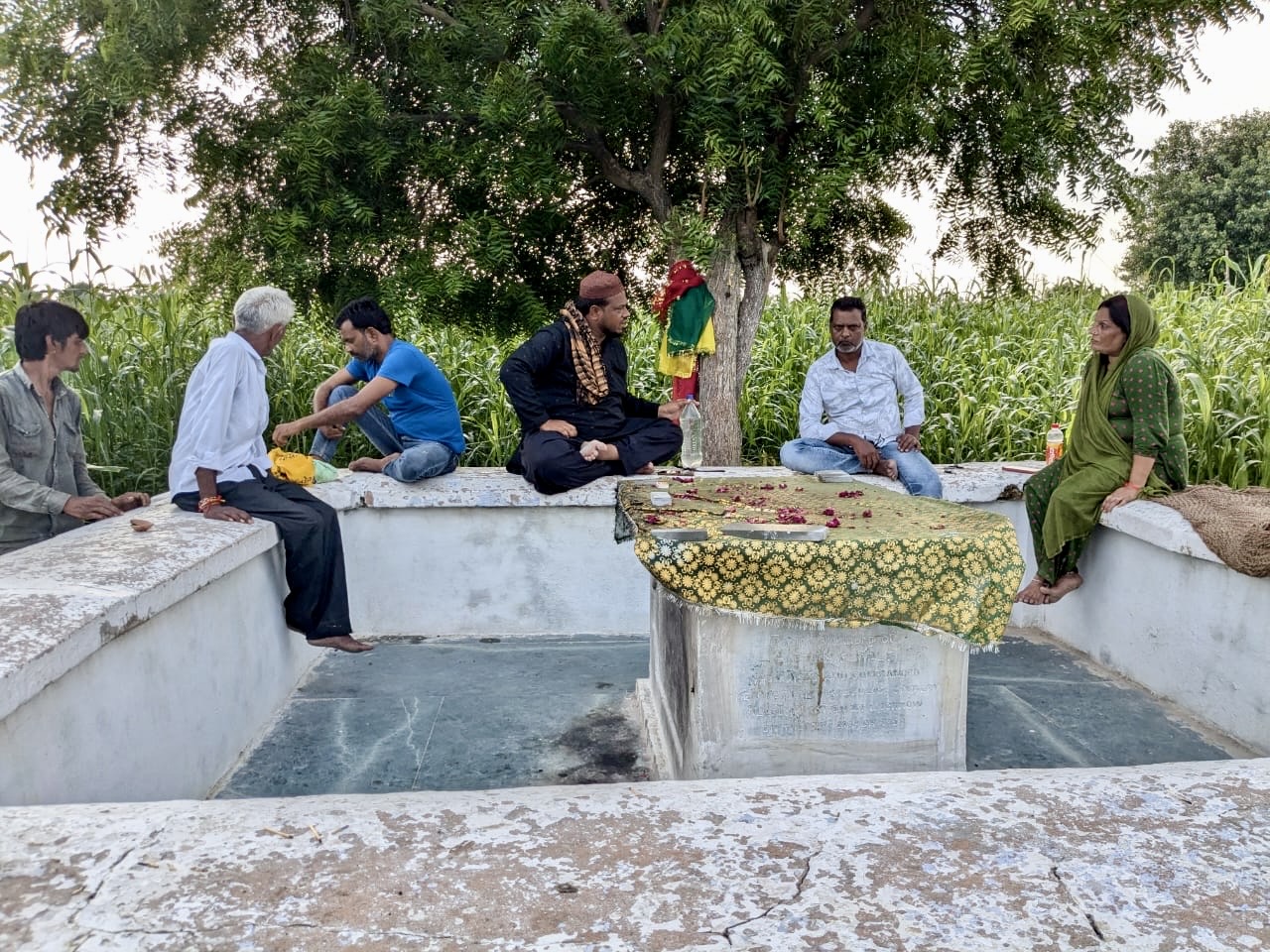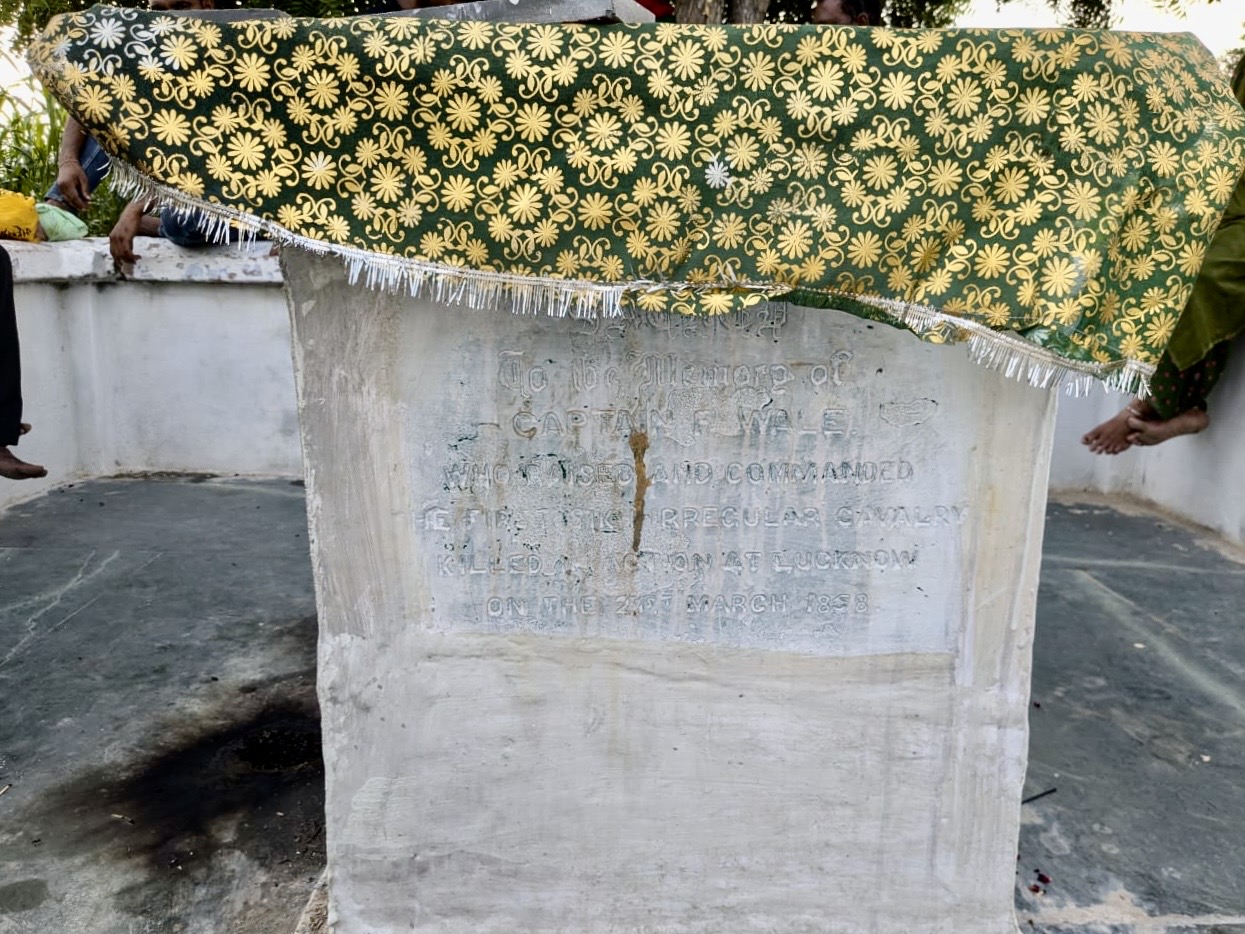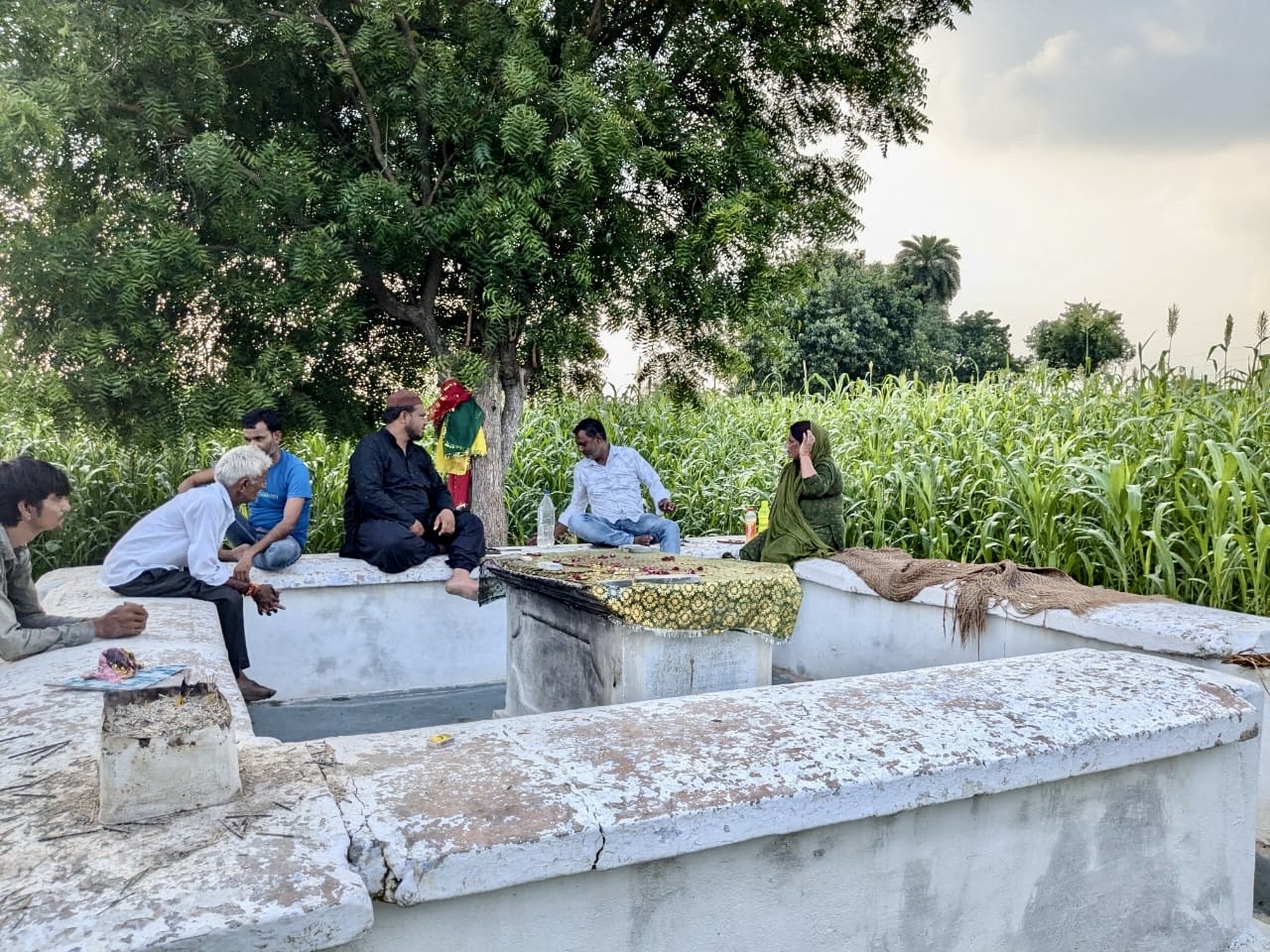The Curious Grave of Lucknow: A Tale of Cigarettes and Faith

Lucknow: Tucked away on the outskirts of Lucknow, behind the remnants of Musabagh Palace, lies an intriguing grave not adorned with flowers or candles, but with a curious collection of cigarette packs. Locals reverently refer to it as the shrine of ‘Cigarette Wale Baba’. This unusual site is tied to Captain Frederick Wells, a British officer who met his end during the tumultuous 1857 uprising, where history and folklore intertwine in surprising ways.
The cemetery serves as a quiet resting place for forgotten British officers, featuring a distinctive grave for Captain Wells, affectionately known as ‘Kaptan Baba’. A green cloth embellished with gold floral patterns covers it, while the air is thick with the scent of incense. Scattered around the tomb are cigarettes—some half-smoked, others freshly lit — offered by those seeking miracles.
Mishrilal, the shrine’s caretaker, noted that the offerings have evolved over time. “People bring what they think Baba would have enjoyed — cigarettes, liquor, even cooked chicken. It’s not the typical chadar and flowers you’d find at other shrines,” he explained. He also observes a marked increase in visitors on Thursdays, when people arrive with hope and cigarettes in hand.

Visitors of all faiths come to the shrine. “Whether Hindu, Muslim or Christian, everyone finds their own way to connect with the spirit of the place,” Mishrilal shared. “They believe Baba can resolve their problems, especially with matters of the heart. Couples facing obstacles, like family opposition, come here to offer cigarettes to Kaptan Baba and pray for his help.”
Siraj Ahmed, a local schoolteacher from Sitapur, expressed, “I am not sure if I believe it works, but I have seen so many lives change after people visit here. It is hard to ignore that kind of impact.” He added, “I came out of curiosity, but after hearing others’ stories, I felt I had to experience it myself. Even if I’m skeptical, there’s something powerful in how people believe.”
This practice is a unique blend of faith, folklore and colonial history. Visitors tie their wishes to the Archaeological Survey of India (ASI) board outside the cemetery, substituting it for a traditional tree or jali.
“People offer cigarettes here to honor the Captain’s memory. Legend says he enjoyed smoking and drinking, so the offerings are a way of showing respect in a personal and meaningful manner,” Mishrilal explained.
[caption id="attachment_450441" align="aligncenter" width="1245"] The grave of the British officer Fredrick Wells[/caption]
The grave of the British officer Fredrick Wells[/caption]
Though the ritual may seem odd to outsiders, those who visit the shrine swear by its power. “My cousin’s marriage was delayed for years. We came here, offered cigarettes, and within months, the family agreed,” recounted Shalini, a nearby resident. “There is something magical about this place, even if it does not make sense.”
Shalini continued, “I have seen many come here with heavy hearts and leave with a sense of relief. It is not always about the material results; it is the hope and faith that people carry with them. The rituals might seem unusual, but our belief in this place is strong and enduring. Whether it is luck or faith, this shrine gives many a renewed sense of possibility.”
Musa Bagh was established in the early 1800s as a retreat for Nawab Saadat Ali Khan. It gained significance during the 1857 uprising when the 7th Oudh Irregular Cavalry refused to use new rifle cartridges, believing they were greased with pig and cow fat, violating their religious beliefs. Later, Begum Hazrat Mahal and her troops utilised it as a stronghold, marking the end of Lucknow’s resistance to the British.
Today, historians view Musa Bagh as a site of both defiance and defeat. Once surrounded by beautiful gardens with views of landmarks like Rumi Darwaza and Bara Imambara, it now lies in ruins. The palace was destroyed in the battle between the British and Awadh forces. Although the British emerged victorious, it cost Captain Wells his life.
Roshan Taqui, a historian specialising in Lucknow and its culture, noted, “Captain F. Wells, a British officer who led the first Sikh irregular cavalry, is buried here. He was killed in the final battle of 1857. His friend, Captain L.B. Jones, erected the grave. Locals believe a British figure often appears asking for cigarettes and then returns to the cemetery. Many think this figure is Captain Wells' spirit. Because of this belief, people travel from afar to offer cigarettes. They come to pray, and when their wishes come true, they return to make more offerings.”

On Thursdays, the shrine buzzes with activity. Visitors from all walks of life crowd around the grave, lighting cigarettes, whispering prayers, and offering everything from meat to liquor. “During festivals like New Year and Christmas, the footfall surges to the point where there’s hardly space to stand,” Mishrilal remarked.
The shrine of ‘Cigarette Wale Baba’ may seem peculiar, but it offers comfort in unexpected ways. Whether it serves as a piece of history or a sanctuary of faith, this quiet spot in Lucknow continues to hold a special significance for both the past and the present.
